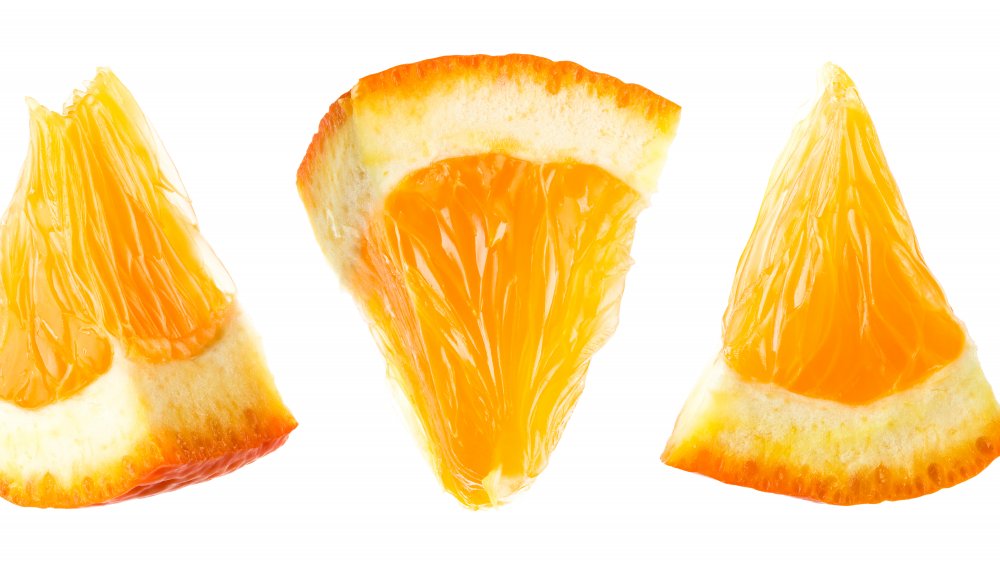Why You Should Think Twice About Eating Oranges
Oranges, in all their bright, juicy splendor bring a lot to the party. Arrange an odd number of them in a bowl on your dining room table and ta-da – you instantly look like you have your life together. Stud them with cloves for an all-natural air freshener and prepare for the #DIY likes to roll in. Or, slice them into wedges to adorn tall, frosty glasses of Belgian-style beer and your party is instantly upgraded. We suppose you could also, you know, eat them but there's a few things to keep in mind if you do.
While oranges have many healthy qualities, including a low calorie count (just 47 cals for 100 grams, or roughly half a large orange), more than an entire day's worth of vitamin C, and loads of free-radical busting antioxidants (via Healthline), they can also potentially wreck your smile and contribute to some other unsavory health conditions, like heartburn. Citrus fruits can pose a threat to your precious tooth enamel, and their acid content doesn't always play nice if you have too much acid in your stomach already. It's hard to enjoy your life as a DIY influencer/host-with-the-most when you're dealing with bad teeth and a craving for Alka-Seltzer.
How eating oranges can affect your health
You may have heard that the acid in citrus fruits like oranges can soften tooth enamel, but did you know oranges' sugar content plays a role, too? According to National Dental Care, the sugar contained in oranges actually feeds the bacteria that likes to munch on our tooth enamel. Now that you have the image in your head of tiny germs hungrily eating away inside your mouth, let's take it one step further. Once your tooth enamel is gone, it doesn't come back, leaving you susceptible to sensitivity, discoloration, and tooth decay. There's nothing like the thought of irreparable damage to your teeth to make you think twice about eating oranges!
Eating the whole fruit is better than drinking the juice, though. Science Daily says, in one study, orange juice caused an 84 percent reduction in tooth enamel hardness and had the effect of "wash[ing] the tooth away." As with most things, moderation is key. Don't overindulge on oranges and be sure to brush your teeth with a fluoride toothpaste. If you suffer from acid reflux disease, Live Science points out that the acidity of oranges can cause heartburn or vomiting. Eaten in excess, the fruit may also cause nausea and bloating, among other digestive issues, and insomnia due to extreme vitamin C intake. Seeking an orange alternative? Mother Nature has given us other options, like blueberries, apples, and watermelon, that are good for you without all the potential tooth and belly backlash.

